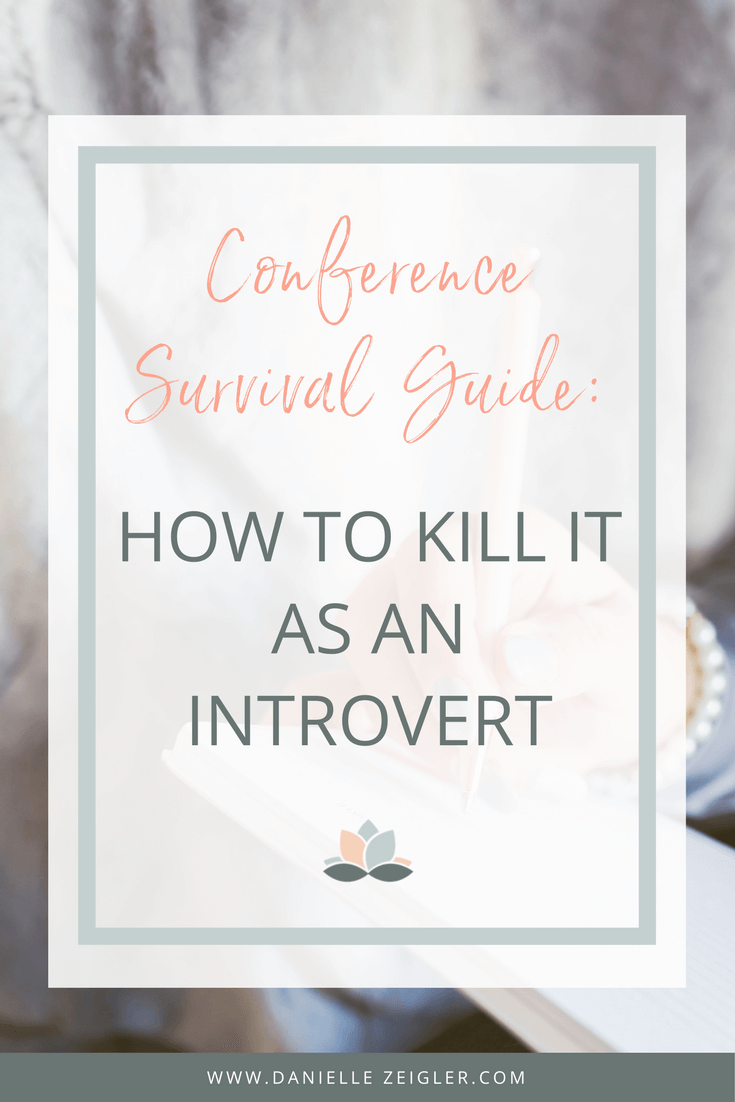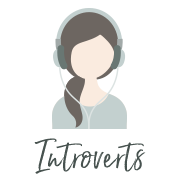Conference Survival Guide: How to Kill it as an Introvert
/I'm gearing up to attend my second year of Content Marketing World in Cleveland next week. I love the energy and creative buzz at in-person conferences, but the endless sessions and socializing can feel overwhelming.
I took pages of notes last year (I have this strange love of physically writing notes), learned from my SEO idol Rand Fishkin, and felt inspired for weeks afterward.
I also handled my energy better than I have in similar situations. I've come to terms with being an introvert and am always learning how to better use and protect my energy reserves.
So I've organized my lessons from last year, plus a few new tips I'm excited to try, into a type of Conference Survival Guide for Introverts.
5 Tips to Survive a Conference as an Introvert
1 | Know yourself, your goals + lower the pressure
Know yourself.
Think back to previous events. What inspired you? Who do you remember talking to and why do you think they stick out in your mind? Was there a breaking point for your energy?
Know your goals.
Keep one main goal in mind. Are there people there you want to meet? Is there a specific topic you want to learn as much as possible about? Knowing your goals will help you prioritize where to spend your energy.
Lower the pressure.
Everyone is in the same boat. Conferences are supposed to be fun and inspiring. Stay positive and take a deep breath.
When it comes to networking, it can feel like the goal is to connect with as many people as possible, but that's not really helpful. If you allow the connections to happen organically and authentically, they're much more likely to last.
2 | Know your schedule & review the speakers
Introverts tend to feel better entering a situation with some preparation. It takes less energy than having to come up with solutions on the spot.
Make sure you review your schedule and keep a copy with you.
My assistant recently taught me another useful tip related to conference prep.
Review the list of speakers.
Not only is it good to do a little research on the speakers of your sessions, but take note of those who you aren't familiar with teaching the smaller sessions. These are the up-and-comers. They'll likely be more accessible than the bigger names, but still have plenty to offer as far as connecting.
3 | Allow for pockets of free time
"When it comes to your energy and your needs, no one else is going to take care of you. You have to know- and ask for- what you want." -Beth Buelow
Everyone has different needs when it comes to downtime. Plan pockets of free time into your schedule, but also allow yourself flexibility if you need more.
Pockets of free could look like:
Skipping the early morning breakfast social
Returning to your hotel room during the lunch break
Taking a few extra moments in a quiet restroom or unused room
Skipping happy hour or any of the social events
You might feel guilty about skipping some of the social events, but if you're exhausted and forcing conversations, it will come across that way. While I recommend trying to attend at least a few of the events, don't feel pressured to attend everything.
4 | Practice your introduction & possible questions
What do you want people to know about you?
If you don't already have an "elevator pitch," try this formula: (I hate that term, by the way. Something about it immediately turns me off. BUT it's important to know what you do and who you serve so you don't produce a jumble of word-vomit, as I often do.)
"I work with [type of person] who are [problem you solve]. What I do is [how you solve the problem]."
Does the thought of networking scare you? Are you afraid you'll freeze up and stand there awkwardly staring at the floor?
First, that's really not likely to happen. Here's one quick question to help you overcome fear.
Next, a little prep can go a long way in calming your nerves.
Remember, people love to talk about themselves (usually). Keep your questions positive and focused on the other person.
Examples of generic questions for networking:
"Have you ever attended this conference or a similar one before?"
"Which session has been your favorite so far, and why?"
"Is this your first time visiting this city?"
"Where is your company located? Do you enjoy that location?"
Having a few basic questions in mind will help you feel more prepared and help you listen to their response, rather than trying to think of what to ask next.
5 | Plan downtime once you get home
I've heard countless introverted speakers swear by scheduling in downtime after an event.
Knowing you have this downtime planned will also help you stay energized during the event.
PRO TIP: Wear clothing you feel confident and comfortable in. If you're uncomfortable, you'll be wasting precious energy focusing on that feeling rather than the event.
In the comments:
Share ONE tip that's helped you survive (and make the most of) a live event or conference!









